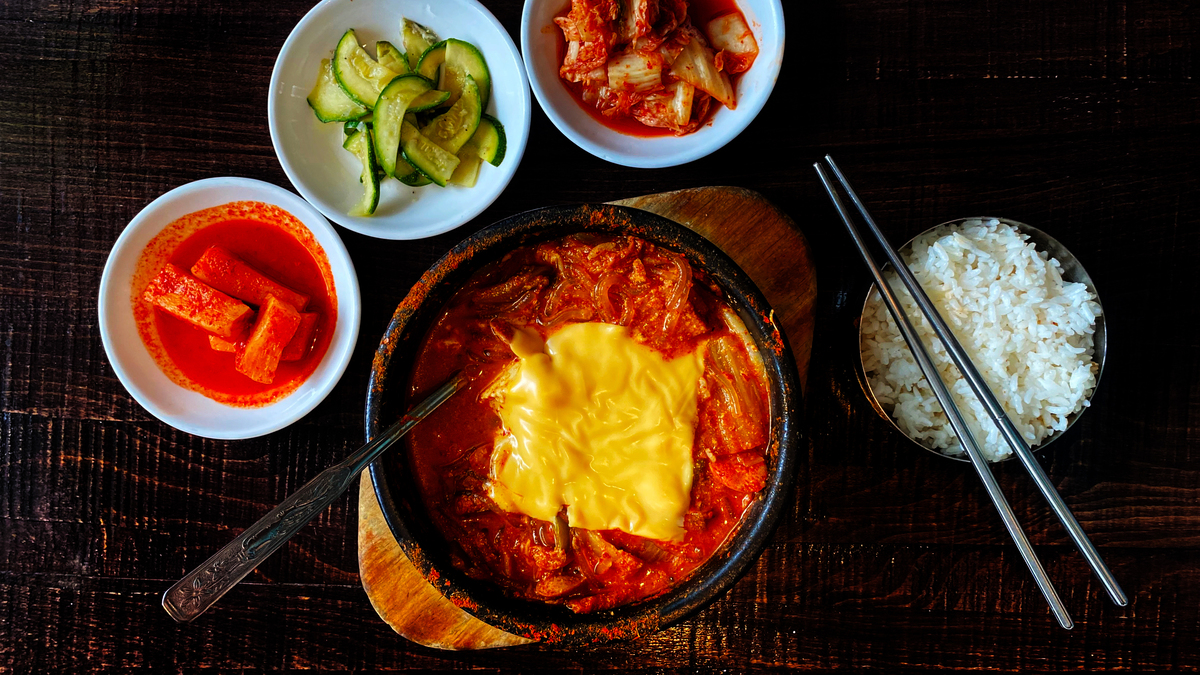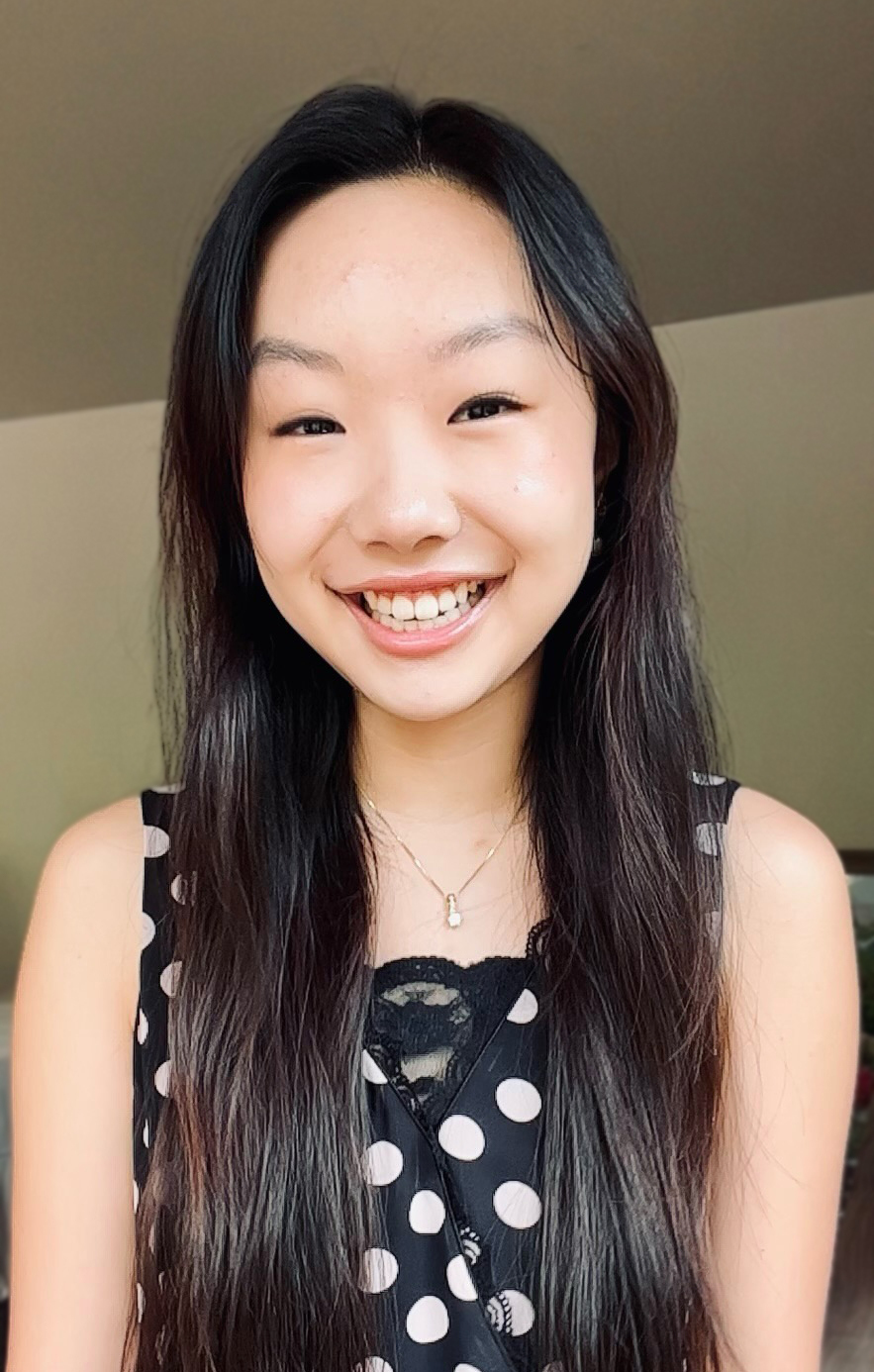
Budae jjigae, or army stew, is a Korean combination stew that includes American design processed food.
Lauren Migaki/NPR.
conceal caption
toggle caption
Lauren Migaki/NPR.

Budae jjigae, or army stew, is a Korean combination stew that includes American design processed food.
Lauren Migaki/NPR.
A variation of this story initially appeared on the Trainee Podcast Difficulty newsletter Find Out More about the contest here
Grace Go’s acclaimed podcast begins with her preferred home cooking, budae jjigae, which she refers to as “ham, sausage, spam, a package of immediate noodles all prepared in a spicy broth topped with American cheese and sliced scallions.”
Budae jjigae, which suggests army stew in English, ended up being popular in South Korea in the 1950s, throughout a time of hardship following the Korean War. “It consists of standard Korean staples such as gochujang and kimchi however with a twist of American foods,” Grace discusses.
Grace’s podcast, which explores her complex relationship with budae jjigae and her own body, is the winner of the very best Mental Health Podcast Reward in this year’s Trainee Podcast Difficulty Her podcast is called Pain Food
” This was the very first piece that I have actually made where I put myself in the spotlight,” states Grace, a trainee reporter and increasing senior at Mercer Island High School outside Seattle. That vulnerability, peppered throughout her podcast, captured our judges’ attention.
With the noise of her mother’s budae jjigae sizzling in a metal pot, all tape-recorded on her phone, Grace welcomes listeners into her Korean American household’s kitchen area, and into her own journey with psychological health.
Food as a source of convenience– and pain

Seventeen-year-old Grace Go sent a winning podcast about psychological health and home cooking.
LA Johnson/NPR.
conceal caption
toggle caption
LA Johnson/NPR.

Seventeen-year-old Grace Go sent a winning podcast about psychological health and home cooking.
LA Johnson/NPR.
” A number of us who matured in an immigrant home understand that our moms and dads particularly worth food,” Grace discusses in her podcast. “However paradoxically, another element of our culture opposes this concept, and avoids lots of Asian Americans from having a healthy relationship with food.”
In her podcast, Grace plays recordings of her member of the family talking about her body, in both English and Korean. “Grace, I believe you put on weight,” states someone. Others inform her to stop consuming, that she’s growing.
These passive remarks took a major toll on Grace’s wellness. “For many years, I didn’t consume correctly, and it got to a point where I totally eliminated foods I believed were bad for me, such as my preferred, budae jjigae,” she discusses.
” Then lastly, in November of 2021, I was identified with an eating condition.”
On her roadway to healing, Grace takes a look at where she originated from
In the podcast, Grace processes her medical diagnosis like a reporter. She investigates psychological health in Asian American neighborhoods and interviews specialists like Joann Kim, the household youth program supervisor at the Korean Social Work Center near Grace’s house.
Joann assisted Grace through her own recovery. In the podcast, Joann discusses that there’s a typical group mindset that’s typically discovered in Korean immigrant neighborhoods– and it’s shown in the language. So rather of stating “me,” there’s the Korean word woori, implying “us.” She states that can develop a great deal of pressure to suit.
” Which makes us truly connected to what other individuals consider us, which image that we provide to others,” Joann states.
Grace discovers to enjoy her pain food
Even with Joann’s assistance, it took control of 2 years for Grace to feel comfy asking her mother to make her preferred supper, budae jjigae.
” It wasn’t a yearning. It was a lot much deeper than that,” Grace remembers. “I consumed the whole pot essentially all by myself, and for the very first time in a truly very long time, it didn’t truly seem like I was doing something bad. I was doing something great for myself.”
Facing body image, while attempting to comprehend how your culture, household and language can form your understanding of psychological health– that’s a lot. Grace states she’s sharing her story for anybody else who’s going through a comparable experience.
” My hope is that more resources will be supplied to my neighborhood and psychological health will end up being less stigmatized, so that one day, others who have actually experienced a comparable journey to mine will have the ability to enjoy their pain food and discover convenience within it.”
Listen to Grace’s podcast here
Visual style and advancement by: Elissa Nadworny, Lauren Migaki and LA Johnson
Modified by: Nicole Cohen